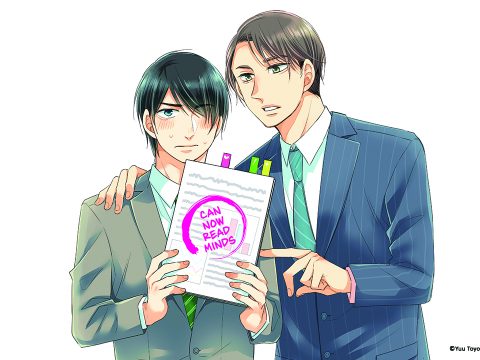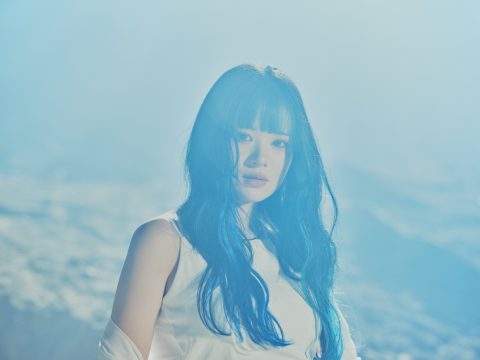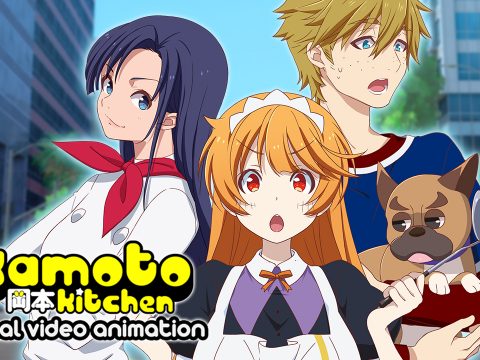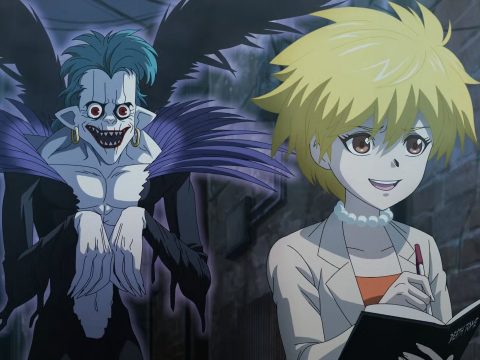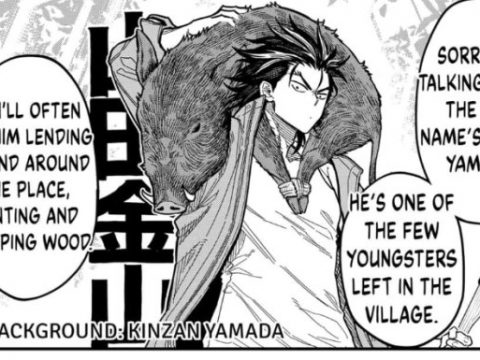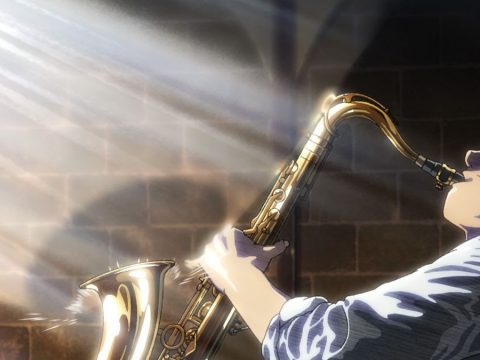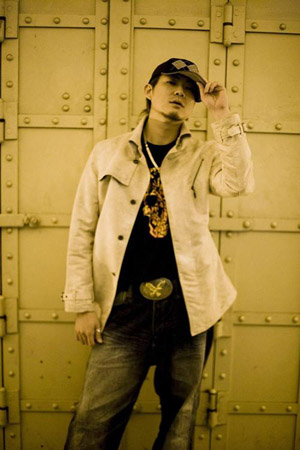 If you’ve heard a hip-hop track in a recent TV anime, chances are you were listening to the vocal stylings of Lotus Juice, a Tokyo-based musician and rap artist. Born in Japan but raised in New Jersey, Lotus Juice has made a name for himself performing English-language vocal tracks for TV anime like Soul Eater, Katanagatari, and the recent Jojo’s Bizzare Adventure TV series.
If you’ve heard a hip-hop track in a recent TV anime, chances are you were listening to the vocal stylings of Lotus Juice, a Tokyo-based musician and rap artist. Born in Japan but raised in New Jersey, Lotus Juice has made a name for himself performing English-language vocal tracks for TV anime like Soul Eater, Katanagatari, and the recent Jojo’s Bizzare Adventure TV series.
You may also know him from the Persona video game and anime series, having performed vocals for several songs on the Persona 3 soundtrack, including the main battle theme “Mass Destruction,” as well as the ending theme for Persona 4 The Animation. He also recently released his second solo album, Carpe Diem.
In this interview, we ask Lotus Juice about his first exposure to hip-hop, musical inspirations, and how he really feels about Hatsune Miku:
So I hear the first hip-hop album you ever bought was A Tribe Called Quest’s Midnight Marauders…
Yeah, that changed everything. I was already into music since my Dad plays the banjo — he loves bluegrass — and when I heard that album I just really got into it, the whole…
(Lotus Juice begins rapping “Award Tour” from Midnight Marauders)
…and I was psyched when they said “Tokyo” in that song, I was like “yeah, Tokyo!” I mean, I didn’t really speak good English back then. I moved to Jersey when I was 8, and I bought that album when I was 14. The album was on cassette tape, and I’d listen to it with a Walkman at school, but then we’d go to a friend’s place and just blast it. We ended up getting yelled at, but…
And from there you started to get into hip-hop?
Yeah, really got into it. I mean, everyone was. It was a huge thing, everyone was listening to it, and hip-hop artists were making huge money. I was a basketball player at the time, and somebody would just bring their boombox to the court and start blasting HOT 97, this hip-hop station in New York City. Or a mixtape.
This was past the point where people would walk around with a boombox on their shoulders constantly, right?
Yeah, that was way before my time. This was like 1994, 1995. Jay-Z wasn’t big at all at the time, Biggie Smalls had just taken over, and everybody was kind of scoping around hip-hop, maybe trying to bootleg some of that, and… I mean, it was different then, how people saw gangster rap. Nowadays people are starting to understand that the definition of being a gangster is being taciturn, not speaking too much. It’s changed, definitely.
When did you start rapping?
I never thought I would be a rapper, because, I mean… I’m a Japanese guy! (laughs) But nowadays there’s PSY, and like… hip-hop just grew out of the United States, and gone worldwide, and there’s no problem with that kind of thing now. A lot of hip-hop artists in Japan actually travel a lot and perform all over now, like in France or the UK.
But as for why I started and what inspired me… it was just about having fun. It wasn’t about, like, talking about my pride or anything like that. I didn’t grow up in the ghetto. I was just a kid from Japan trying to fit into that kind of atmosphere in New York and New Jersey.
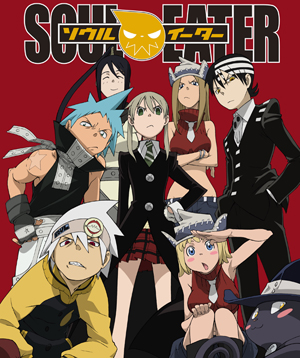 Did you ever encounter any friction or discrimination growing up?
Did you ever encounter any friction or discrimination growing up?
I did, I did. It was kinda tough. It was tough because I was 8 when I came to the US, by the time I was 15 I had semi-broken English, and when you’re 15, it’s the height of puberty. Guys are just, like, looking for girls and girls are looking for guys.
And I mean, people were nice to me. I discovered some really good friends, back in Jersey. Still very close today. But it was still really hard to adjust, just because of how different everything was.
But I’m still really happy I got to come to the US. I love the States, love the people here, I just had a hard time trying to learn the language and understand the culture. Even at 8, it was a huge culture shock.
And it was scary back then in New York City. We’d go out on weekends, and my Dad’s office was on Broadway, so… we’d kind of go out on drives, and he’d get lost. And there was one time he ended up in Harlem, y’know, 20 years ago. And you do not want to be in Harlem 20 years ago.
One time when I was 17 we got into trouble, actually. I was driving, and had 3 friends in the car with me. We stopped at a diner, and it was just packed. And as we were going inside, about 20 kids were coming out of the place, and they were giving us looks, y’know. And we saw the diner was packed, so we started coming out too, and the other guys thought we had a problem with them. One of them took out a knife, showed me a gun. And I mean, we weren’t troublemakers or anything. I was just like “whoooa, let’s get out of here.”
And as we’re getting out of there, one of them just, like, kicks my car, gives me a dent, and they just ran away. Eventually they got caught by police and I had to go to court over it, actually. But I mean, that was just stupid high school stuff.
A lot’s changed since I first came here, though. Like, I had a kid in high school, a friend of mine — not too close, but still — come up to me and be like “ATOMIC BOMB!” And that bothered me at first a little bit, but… he was just a stupid kid, and we all knew it, so it didn’t really upset me that much. It didn’t feel like a racist comment, just a stupid one.
And I bet there’s nothing like that going on now. I mean back in high school a good friend of mine came up to me and was like “Japanese people eat raw fish, right? What is wrong with you?” I go to college, come back, and the same kid’s like “Yo, man, you gotta tell me the best sushi place in New York! That stuff is so good!”
So things just changed so fast, y’know?
What would you say your biggest musical inspirations are?
Growing up, I listened to my Dad’s banjo a lot. I didn’t like it back then, I thought it was cheesy. But now I love it.
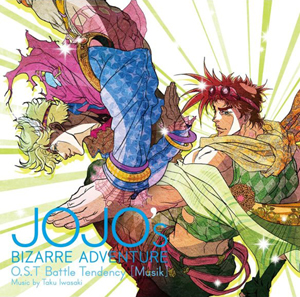 What kind of songs did he play?
What kind of songs did he play?
Oh, “Country Road,” all sorts of American standards and classics. “This isn’t country, it’s bluegrass,” he’d tell me. And it’s really cool music. I like it now, even if I wasn’t that big a fan at the time.
Other than that, I listened to a lot of hip-hop artists. Biggie Smalls, Wu Tang, A Tribe Called Quest, and a lot of R&B artists. Boyz II Men, Stevie Wonder, things that I think most Americans hear just growing up.
Musiq Soulchild’s another inspiration of mine. He’s just an amazing, amazing singer. He comes up with really creative stuff, and it’s always original. He calls his music “Neo Soul,” and he doesn’t use trendy beats or digital sounds, no autotune. I mean it’s okay if you use it for a little bit, but it’s just been abused. If it’s Hatsune Miku it’s okay, but…
How do you feel about Hatsune Miku?
I thought it was corny at first, but it’s cool now. I’ve listened to some of the songs that amateurs and professionals make, and it’s good music. I like it. But it’s just sounds.
If it’s a song, words and melodies… those are the things that move me. Every time Yumi Kawamura sings, she like, almost makes me cry. “Kimi no Kioku,” the ending theme for Persona 3… that song just gives me chills every time she sings it. No Hatsune Miku can do that. So I mean, I’m not a huge fan, but it’s out there and people like it, so… let them have fun, I say. I’m not a hater. (laughs)
What have you been listening to recently?
I’ve been listening to Daft Punk’s new album, and… I actually haven’t been listening to rap recently, because there just aren’t that many good albums. Rodney Jerkins… that guy’s been working as a track maker for over 20 years, and everything he makes is always original. You know instantly when it’s a Rodney Jerkins production, just by the beats. There was a song he did for the Bad Boys 2 soundtrack, with Justin Timberlake on it, called “Love Don’t Love Me.” Oh man, that track was just amazing. Loved it.
And man, Jerkins’ drums are just amazing. It’s always musical, like in the pitches he chooses. That’s really hard, and you have to have the ear for it, and Jerkins definitely does. It’s just always amazing. Anybody can go out there and make beats, software’s cheap now, but to go beyond that… takes talent.
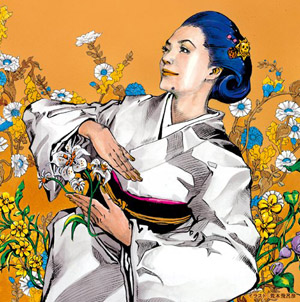 You recently had the opportunity to record a song for the Jojo’s Bizarre Adventure TV series — were you a fan of Jojo’s before then?
You recently had the opportunity to record a song for the Jojo’s Bizarre Adventure TV series — were you a fan of Jojo’s before then?
Hell yeah. It’s huge in Japan, and the author — Hirohiko Araki — is amazing. He’s like… his ideas are just out there, y’know? And when you see him on TV… he’s 50, but he looks like he’s in his 30s.
Well he gets to work with Gucci and stuff, right?
Oh, man, his designs. You should see my phone…
(Lotus Juice pulls out his phone, which has an Araki illustration set as its wallpaper)
…Yeah, this was made for Ishikawa Sayuri, an Enka singer in Japan. Apparently Araki lives really close by to her, and I guess they were both taking out the garbage, ran into each other and she was like, “hey, could you draw something for my next single?” [Ed note: the image in question can be found here]
But yeah, I love Jojo. (laughs)
How did you get involved with the show?
Through Taku Iwasaki. He’s the guy who wrote the track I rapped on, and he composed the soundtrack for the 2nd part of the series, Battle Tendency. We’ve been working together for a while now.
I think in total I’ve done about 12 or 13 songs with him, including ones for Black Butler, Soul Eater, Katanagatari… he’s a true musician, very detailed, very versatile. He doesn’t compromise at all, and neither do I, so it’s very easy to work with him. Same with Shoji Meguro, the composer for the Persona series.
How did you end up getting involved with Persona and working with Shoji Meguro?
He found somebody, and that somebody found me, basically. I had a friend in the industry who called me up and said “this dude is looking for a game music… rap artist. Are you willing to do it?”
I said I was interested, but wanted to hear the beats first, because when I heard “game music,” it didn’t really ring any bells except for “16-bit” to me. (Lotus Juice imitates what sounds like the opening bar of the battle theme from Final Fantasy IV) So he sent me a track, and… it was amazing.
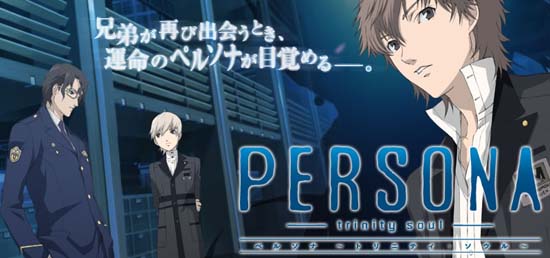
Was that Mass Destruction?
It was “Burn My Dread -Last Battle-” actually. Anyway, he liked me, I liked him, and he kept calling me after that. And supposedly we got very good feedback from the fans, and the original soundtrack sold a lot of copies.
When you were brought on for Persona: Trinity Soul, the TV anime, was that a direct result of your having already worked with Meguro on the games? Just a natural transition?
Well, Trinity Soul’s soundtrack was composed by Taku Iwasaki, right? I think Aniplex tried to get Shoji Meguro to do the music for the show, but he was too busy, so they got Iwasaki, who’s just… he’s a really underrated, great composer. And so I started doing stuff for Iwasaki, and that led to me working on all the other shows I mentioned earlier.
As for me working with Meguro, I rapped for Persona 3 and Persona 3 FES. Then Persona 4 the game was only Shihoko Hirata, vocal-wise. Then when Aniplex wanted to make Persona 4 into a TV anime, they had Shoji Meguro do the music, and the ending theme had me and Shihoko Hirata on it.
So do you all know each other now and respect each other’s work?
Now we do, yeah. Yumi and Shihoko were not very open at first, I think back in 2008. She didn’t talk to me at all, like we had different rooms and stuff. But since we started to do shows and stuff, got to know each other better, I hang out with Yumi like twice a week now. We go out drinking, I have some common friends, voice actors, and it’s just great, we go out and have a great time.
And I think that comes out on stage, how close we are.
Speaking of which, you just recently had a major show at the Budokan, PERSONA MUSIC FES 2013…
Yeah that was amazing, just insane. I mean, like, 20 movie theaters broadcast it across the country, it was on internet streaming, and 7,000 people showed up, I think was the number. And it sold out like that. Every time they put tickets up, they sold out in like 15 minutes. Just amazing, really an honor to be a part of that.
Have you gotten a sense of what the western fanbase for Persona is like?
I wasn’t really convinced until I went to my first convention. I’d done shows at clubs in New York, stuff like that, but people would just come up to me at the con and be like “whoa, you’re Lotus Juice! Can I get a picture with you?!” I actually couldn’t get to sleep because of the jet lag so I was just walking around in the hotel, and this girl grabs my arm and is like “can I dance with you?!” and I’m like… “sure?” But it’s all cool. They respect me for who I am as a person, and for my work. They’re not trying to take advantage of me or anything.
I’ve actually gotten offers to go to cons in Los Angeles, Mexico, Australia, and it’s hard for me to find time to come out just because I’ve got so much going on in Tokyo, but I would love to be like, part of that at least sometimes. Every once in a while.
Are there any projects you’re working on in the coming year that you’re really excited about?
There are, but I can’t talk about them yet. Sorry. (laughs) It’s… I’m working on stuff for games, let’s say, and one anime. But I can’t talk about specifics.
If you could have a stand, like from Jojo’s Bizarre Adventure, what would yours be?
I would love to have Jotaro’s, Star Platinum. Coolest stand. And you can stop time.
And Araki tends to name stands after bands he like, or artists…
I hope he names one after me. (laughs) I actually thought about sending him my album, but I haven’t done it yet. One of these days.
This story originally ran in the 10/29/13 issue of the Otaku USA e-News
e-mail newsletter. If you’re not on the mailing list, then you’re reading it late!
Click here to join.


